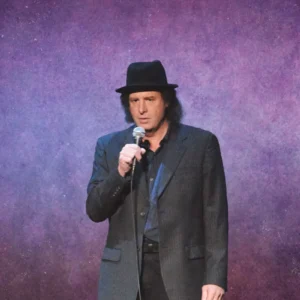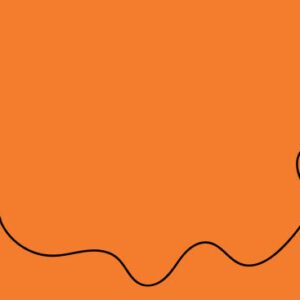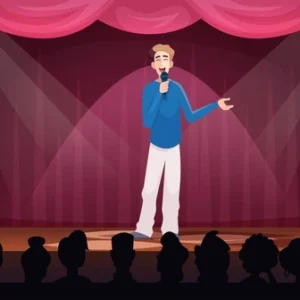It’s a question that keeps surfacing—on social media, in green rooms, in classes. You hear comics toss it around like gospel: “It takes a decade to really discover who you are on stage.” But where did that magic number come from? Is it grounded in some deep artistic truth, or is it just another bit of industry folklore passed down from comic to comic?
Let’s unpack this with a bit of perspective.
First off, stand-up comedy as an art form is still pretty young. Compared to classical arts like painting, sculpture, theater, or even film, stand-up comedy is barely a teenager. It’s only been around in its current form for about 75 to 80 years. So, when someone says “it takes ten years,” they’re not quoting an ancient artistic principle—they’re likely repeating a convenient myth.
The truth is, there is no set time frame for discovering your comedic persona. Some comedians find their voice early. Jerry Seinfeld, for instance, began his career in his early twenties. He famously bombed his first time on stage, but within five years, he was performing on The Tonight Show. And if you watch those early clips, you’ll notice—he hasn’t strayed far from who he was then. The tone, the point of view, the “what’s the deal with…” approach? All there from the start.
On the flip side, you’ve got performers like George Burns who reinvented himself several times before landing on the version of himself that audiences connected with. It’s not about the calendar—it’s about the process. Your persona isn’t something you wake up with one day after a decade of doing open mics. It evolves, just like you do.
In many cases, the first step toward discovering that persona is seeing if you can bring the version of yourself that exists among friends onto the stage. Can you be that comfortable, that loose, that honest with an audience of strangers? That’s the real test. Because if you can do that, you’re already on your way.
When I started performing, I leaned into a style that resembled Seinfeld—clean, observational, tightly structured. Ironically, it wasn’t even the comics I loved most that I emulated at first. I grew up on Carlin, Pryor, and Cosby, but somehow I ended up doing material that sounded more like “What’s the deal with road signs?” Even Seinfeld himself saw it and gave me a sarcastic nod of “approval” after a set one night at the Laugh Factory. That was a wake-up call.
Later on, it was actually George Carlin who helped nudge me in the right direction. He told me, “Take the stuff that drives you absolutely nuts and make that funny.” That’s when things clicked. I stopped trying to imitate and started digging into my actual worldview—my cynicism, my frustration with politics, the absurdity of everyday life. That’s when I started to sound like me.
Now, you might hear other comics say it took them seven years, or that you shouldn’t expect to make money in this business until you’ve been at it for a decade. But again—those are just other people’s stories. Don’t let them define your path. For some comics, the first few years are all about just learning to write a decent joke. Learning structure, timing, misdirection, finding the beats. But once you understand the mechanics of why people laugh—whether it’s surprise, recognition, paradox, irony, or some other trigger—you can begin building material that fits you, not the other way around.
That’s when your persona really starts to take shape. Not because of how long you’ve been doing it, but because of how well you understand what you’re doing and why you’re doing it.
And here’s the thing—don’t be afraid to break these so-called “rules.” Picasso famously said you have to know the rules before you can break them. But in this case, it’s not even a real rule. It’s just an idea that got repeated enough to feel true. When someone tells you it takes ten years to find your persona, what they’re really saying is, “This was my experience.” But their timeline doesn’t have to be your blueprint.
A student of mine once heard that it takes seven years to become a headliner. He told me, “I’m going to beat that,” and did it in two and a half years. Another student beat even that. It’s not about defying the numbers—it’s about refusing to let someone else’s numbers limit your potential.
And money? I was making $800 a gig in less than two years by doing corporate shows, cruise ships, events—anywhere that paid. I wasn’t grinding in clubs, waiting for some booker to give me a shot. I was building a business around my comedy. And no, I didn’t wait ten years.
Another comic once commented on my blog, “You won’t make a dime in this business until you’ve been doing it for a decade.” And I thought—why would you even say that to someone who’s just starting out? Why create this false barrier?
Look, finding your persona is a personal journey. It doesn’t follow a calendar. It follows your choices, your awareness, and your willingness to be real on stage. If you’re just reciting jokes, you’re still in the early stages. But when you’re able to talk to the audience instead of performing at them—when you’re having a real exchange, not just delivering material—that’s when your voice emerges.
Take Anthony Jeselnik, for example. He didn’t start out dark and edgy. He was just testing jokes and realized the audience lit up when he got a little darker. He leaned into that, refined it, and built a persona around that style. His inspiration? Jack Handy’s “Deep Thoughts” on SNL. He took a format he loved and made it his own.
So don’t let anyone tell you your voice will only show up on some arbitrary date in the future. Maybe it takes ten years for some people. Maybe it takes five. Maybe it takes two. You might already be closer to it than you think.
The real key is to stop chasing someone else’s timeline and start listening to your own. Be you. Be consistent. Learn the craft. Be willing to evolve. And most importantly, get on stage—not to prove someone wrong, but to find out what feels most right for you.










